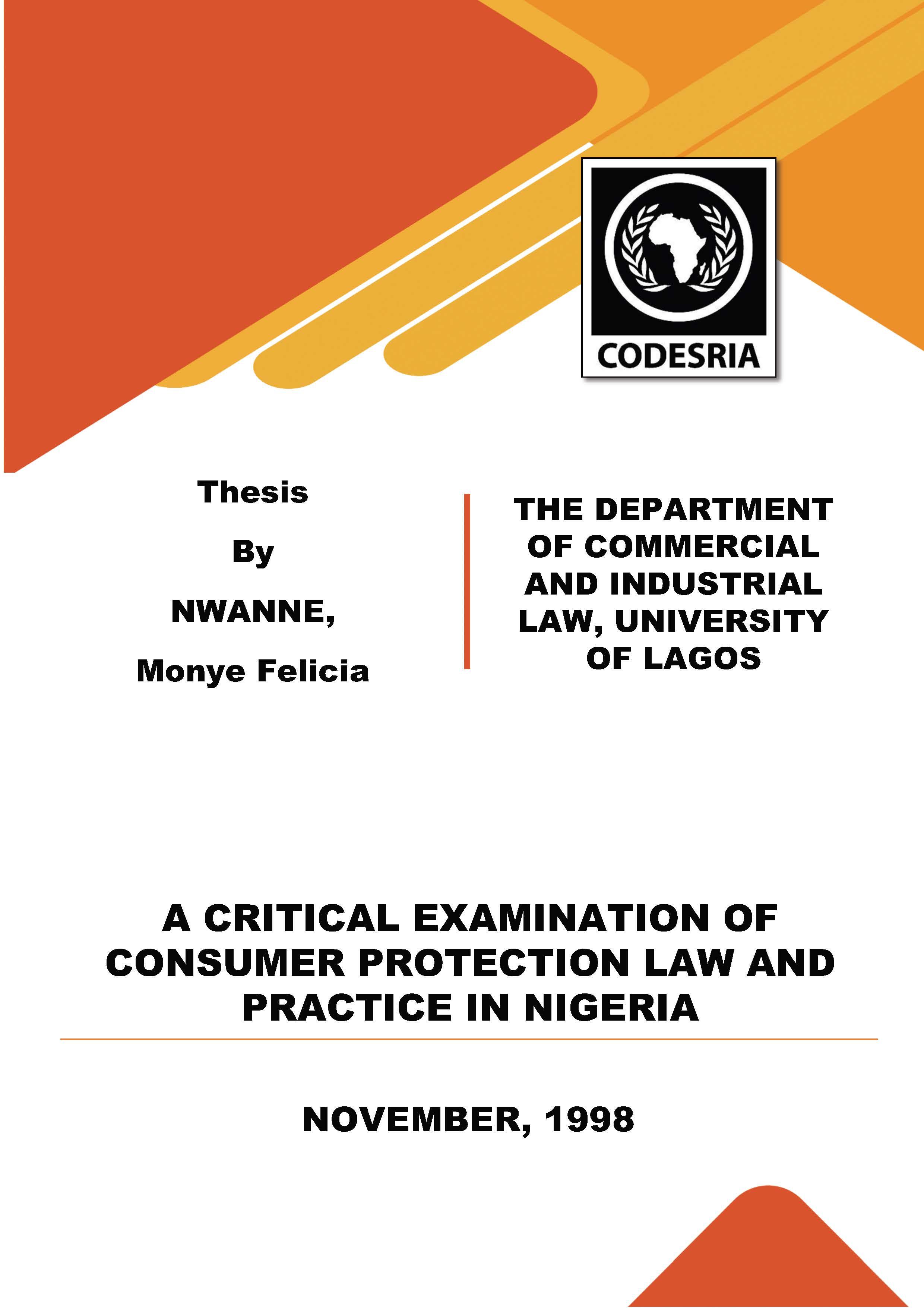A CRITICAL EXAMINATION OF CONSUMER PROTECTION LAW AND PRACTICE IN NIGERIA
Keywords:
CONSUMER, LAW, NIGERIASynopsis
This work considers two broad aspects of consumer law, namely, substantive and practical protection of consumer rights. The former examines the law on consumer protection as contained in the statute books and judicial decisions. The latter deals with
the law in practice. This considers the practical implementation of the various laws on consumer protection by the operative agencies. It also examines the practical effects of these laws on the level of consumer protection. The work is divided into ten chapters.
Chapter one gives a survey of consumer protection in different jurisdictions. It also states the research problems, objectives of the study, hypotheses, scope, signi ticance of the work, conceptual frame work and literature review.
Chapter two discusses the methodology adopted in this work. Chapter three considers the laws gov.erning dealings in regulated products. These products are food, drugs, cosmetics, medical devices, bottled water, chemicals and hazardous products. It is seen from this chapter that the law makes reasonable provtsfc;ns on the control of regulated products. In contrast, the level of practical protection bas remained low due to weak enforcement system.
Chapter four examines the laws which impose further restrictions on dealings in drugs. This reveals that the law adequately controls dealings in drugs . But like the case of laws considered in the preceding chapter, implementation of the statutory provisions remains a problem.
Chapter jive examines the functions and activities of the Standards Organisation of Nigeria whose duty it is to prescribe and ensure compliance with product standards. Like the cases of the agencies discussed in the previous chapters, a major problem facing the organisation is the ineffective implementation of its standards.
Chapter six discusses the civil liability of an offender to the victim. This chapter reveals that a person whose product causes injury to the person or property of another, is civilly liable to that other person. His liability is without prejudice to his criminal
liability.
Chapter seven examines the course of action open to a claimant who is not in privity of contract with the defendant. This chapter reveals that such a claimant can sue in the tort of negligence. But his chances of success are greatly limited by the restrictive meaning accorded the term "product defect" in tort law. Proof of negligence also constitutes an almost insurmountable obstacle. The chapter concludes that as a way of getting round the problem of proof of negligence, there is need to introduce strict product liability in selected cases particularly in the fields of pharmaceuticals and articles of food.
Chapter eight examines the contractual rights of a consumer/purchaser. This chapter shows that action in contract is of immense benefit to the claimant because he does not have to prove negligence on the part of the other contracting party. In addition, liability is strict since an exercise of due care will not absolve the offender. But this course of action is of limited application because it is not available ta a consumer who is not also the buyer of the product. This chapter concludes like the preceding one that the only solution ta the basic contract requirements is the introduction of strict liability in selected areas.
Chapter nine analyses the data on the practical implementation of consumer laws, while chapter ten summarises our research findings and proffers some suggestions.
Downloads
References
Achike, O., CommerciaLLaw in Nigeria, Enugu, Fourth Dimension Publishing Co. Ltd.1985
Cheshire,Fifoot & Furmston, Law of Contract 12th ed., London: Butterworths & Co.(Publishers) Ltd.; 1991.






